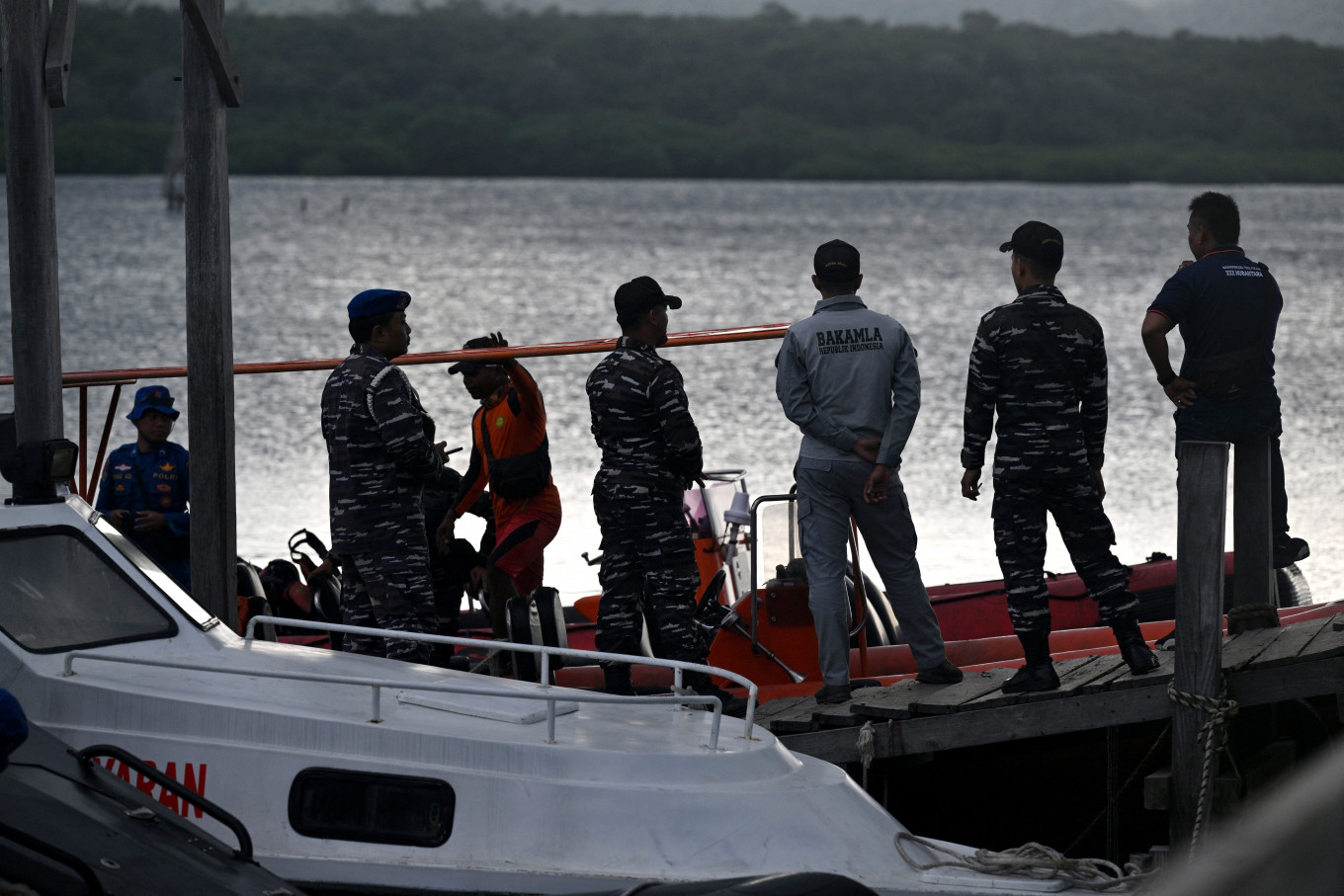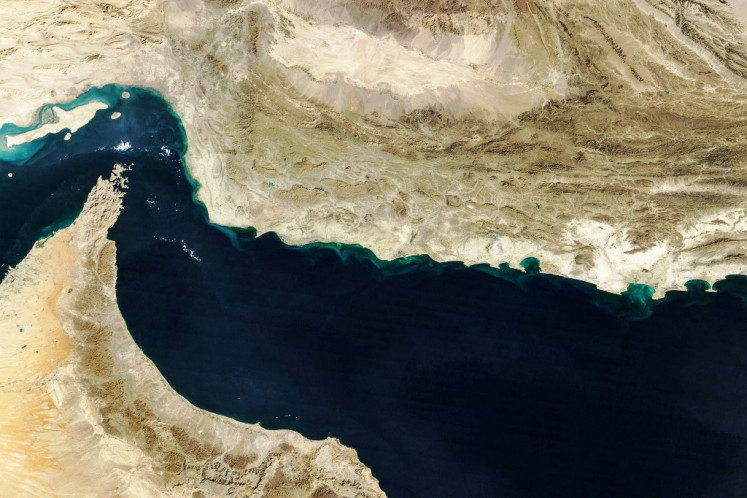Popular Reads
Top Results
Can't find what you're looking for?
View all search resultsPopular Reads
Top Results
Can't find what you're looking for?
View all search resultsNo more business as usual
Sea transportation accidents remain rampant as vessels are routinely overloaded, aging fleets are poorly maintained and passenger manifests often bear little resemblance to reality.
Change text size
Gift Premium Articles
to Anyone
T
he tragic sinking of the KMP Tunu Pratama Jaya in the Bali Strait earlier this month, with at least 18 confirmed deaths and 17 people still missing, is a brutal reminder that sea transportation safety in Indonesia remains a matter of chance.
It was not the first time we watched panicked passengers leap into open water as rescuers scrambled against the clock, and it will not be the last unless we stop treating transportation as just another business.
Indonesia has suffered over 190 major maritime transport incidents in the last decade alone, with more than 787 lives lost according to the National Transportation Safety Committee (KNKT).
From the horrific capsizing of the KM Sinar Bangun in Lake Toba in 2018, which claimed 164 lives, to the 2015 Marina Baru disaster that killed 65 people, the storyline rarely changes.
Vessels are routinely overloaded, aging fleets are poorly maintained and passenger manifests often bear little resemblance to reality.
And yet, each time a ferry goes down, we start over as if nothing has been learned.
Much of the failure comes down to the way ferry transport is treated in this country: as a low-margin business that depends on cutting corners.
The thinking is simple; build the boat, pack it with people, and if something goes wrong, call it an accident.
Fares are heavily subsidized for political reasons, leaving operators little room to invest in maintenance or training.
Safety drills are skipped, vessels are kept running long past their recommended lifespan and inspections are often just a matter of paperwork, as one frustrated maritime transport expert remarked recently.
Singapore, a maritime hub just across the Strait of Malacca, has demonstrated that excellence in transport safety is not a question of size but of standards.
If Indonesia wants to scale that level of professionalism across its 17,000 or so islands, it must apply the same care and rigor to every maritime route it oversees.
This requires not just technical regulations, but also an overarching cultural shift away from profit-driven minimalism toward duty of care.
This is also very much about personal accountability. Maritime safety should never be a mere checklist.
It is the sum of decisions made by operators, regulators, inspectors and crew members – decisions that must be made with more than just economic incentives in mind.
No captain should sail into stormy seas just to meet a schedule. No inspector should greenlight a rusty ferry simply to save time. No agency should rubber-stamp a safety certificate without properly verifying it.
Accountability also means transparency.
In the airline industry, recent high-profile accidents have triggered global scrutiny, grounded entire fleets and spurred regulatory overhaul.
The maritime sector, by contrast, operates in a quieter, murkier realm, where few reports are published and even fewer recommendations are enforced.
When ferries sink here, they vanish not only into the sea, but also from public memory.
To stop this cycle, the government must do more than express condolences or send rescue teams.
It must overhaul the inspection regime – digitize it, publish findings and enforce penalties for noncompliance.
Ferry operators must be ranked on safety performance, not just profitability.
If costs must rise to ensure safety, let them. Subsidize only where necessary to protect the vulnerable, not to keep prices cheap at the expense of lives.
We must stop asking how many died this time and start asking why this keeps happening.
We owe it to those lost at sea, and to those who still rely on these lifelines every day, to take this issue seriously.
No more excuses. No more silence. No more business as usual to address our sinking safety standards.











